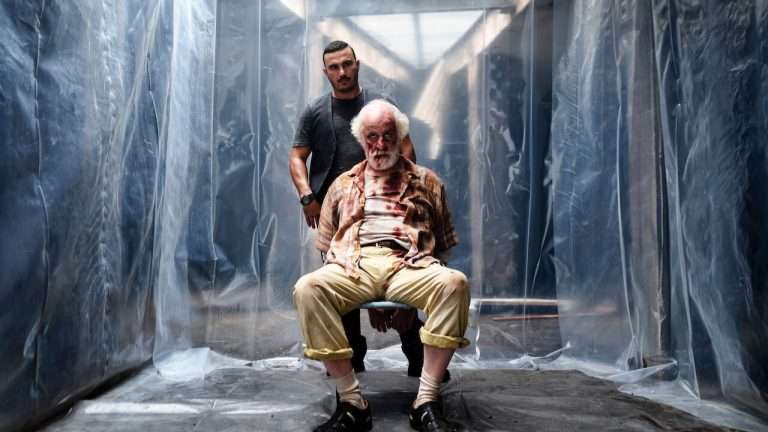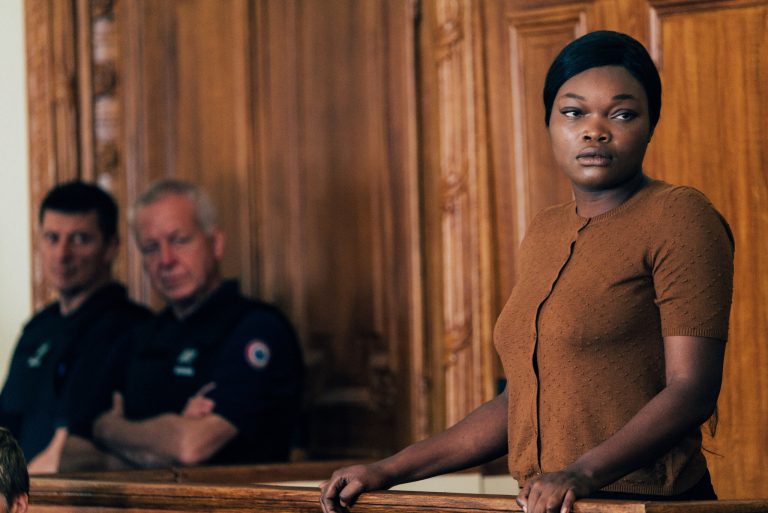“Earth Mama” tells the dishearteningly harrowing story of Gia, a pregnant single mother embroiled in a struggle to reclaim her two children in foster care and, although the film may touch on perhaps trite elements, standard within A24’s unique style of indie-dramas, some audiences will be left quite surprised by some important details regarding the film’s production. Firstly, given the assured, delicate nature of Savanah Leaf’s direction and her remarkable ability to draw emotion, some may be shocked to discover that this is her first feature film.
Additionally, given the superb naturalistic performances from the ensemble and the tightly crafted screenplay, others may be stunned when realizing that the film is, in fact, not a documentary, despite its deliberate attempts to present itself as such. Whilst not perfect by any means, “Earth Mama” certainly follows through with its ambitions, oozing with unfiltered emotion that will grip even the most resistant of spectators and leave them gasping for more from this confident new voice in the filmmaking industry.
Gia, the central protagonist of the piece, is portrayed by Tia Nomore; however, describing her effortless performance as merely another in a slew of great debuts we’ve seen this year is perhaps doing it a disservice, as Nomore develops this character as someone truly human rather than being a simple narrative tool over the course of the film. Her restrained anger and powerful sense of resistance, combined with her frailty when interacting with her children, make her an instantly captivating lead, integral to the film’s success, which arrives as an intimate character study before anything else.
Between this and Cord Jefferson’s “American Fiction,” Erika Alexander is proving herself to be an unrelenting acting talent this year. The rest of the relatively inexperienced cast bring an equal sense of humanity to their respective characters, chief in developing the naturalistic aesthetic of the film and furthering our immersion in this world that lacks any hint of artificiality. Unfortunately, Leaf’s screenplay doesn’t serve these performances as well as it should. The profoundly human nature of the dialogue lacks the subtext necessary to elevate this beyond the standard single-parent drama. Conversations feel uniquely personal but don’t develop the substantive thematic quality of the text; instead, they appear to merely exist to develop the plot instead of characterizing distinct personalities.

Perhaps “Earth Mama”’s most startling aspect is its apolitical nature. It serves as a criticism of an inhuman, mechanical system that would deny this impassioned and caring mother access to her children, exploring these ideas through an on-the-ground perspective rather than shoehorning political messaging. Simultaneously, aided by Tia Nomore’s performance, the character is presented with a lot of weight and emotional baggage, conveyed without the need to lean into sentimental monologues and self-indulgence, typical of films of this ilk. The film arrives as a deeply critical examination of this system, yet nevertheless explores the reasons why these tedious systems exist, allowing for spectators to implant active interpretations on complicated issues, left not with ill-informed judgments but a better understanding of how seemingly well-intentioned people can become locked in these suffocating apparatuses.
Savannah Leaf and cinematographer Jody Lee Lipes’s thoughtful command of the camera supports the intended emotional effect. Lipes utilizes tactics similar to those of his previous work, “Manchester By The Sea,” notably a striking use of long-take to create the same kind of delicate empathy for the characters that occupy the frame and afford every moment a breathing room. However, for all its positive attributes, “Earth Mama” doesn’t offer much beyond this surface-level empathy; the narrative is too simplistic, and the ideas too obvious to leave anything to chew on after the credits roll.
To summarise, “Earth Mama” is a poignant piece, successful in nearly all of its dramatic intentions. However, despite the superb performances, meticulous camera work, and pure dedication to its documentary aesthetic, the film never quite extends beyond anything we haven’t already seen before elsewhere. Savannah Leaf and Tia Nomore prove themselves powerful talents. Yet, the elements around them appear to compliment them rather than bolster them, which will perhaps leave audiences somewhat disappointed, appreciating the undeniable capability on display but wishing for something a bit bolder to really leave them with the intended emotional impact.





![Anne+: The Film [2022] Netflix Review: An Important but Unfocused Mainstream Queer Drama](https://79468c92.delivery.rocketcdn.me/wp-content/uploads/2022/02/Anne-The-Film-768x401.jpg)


